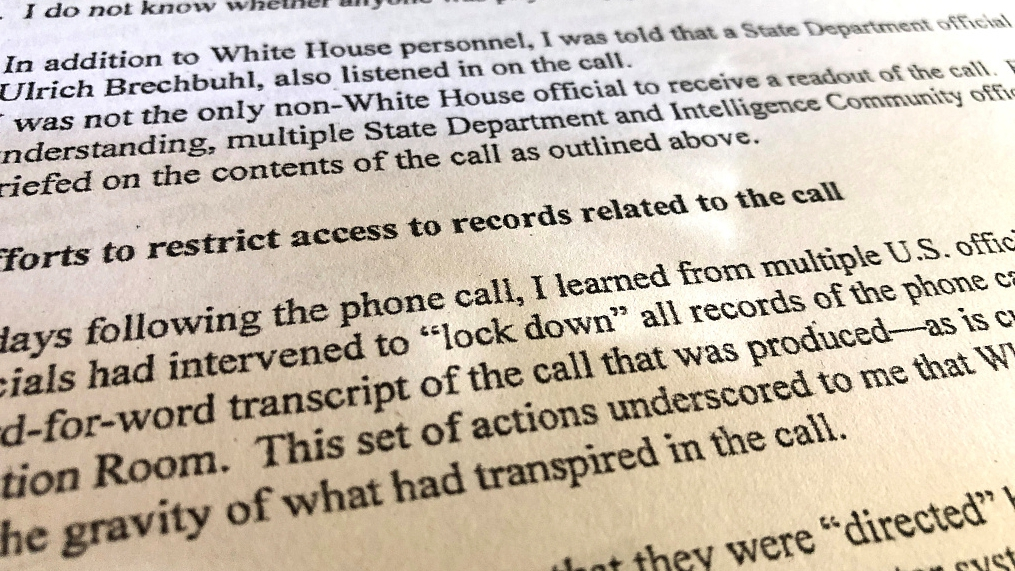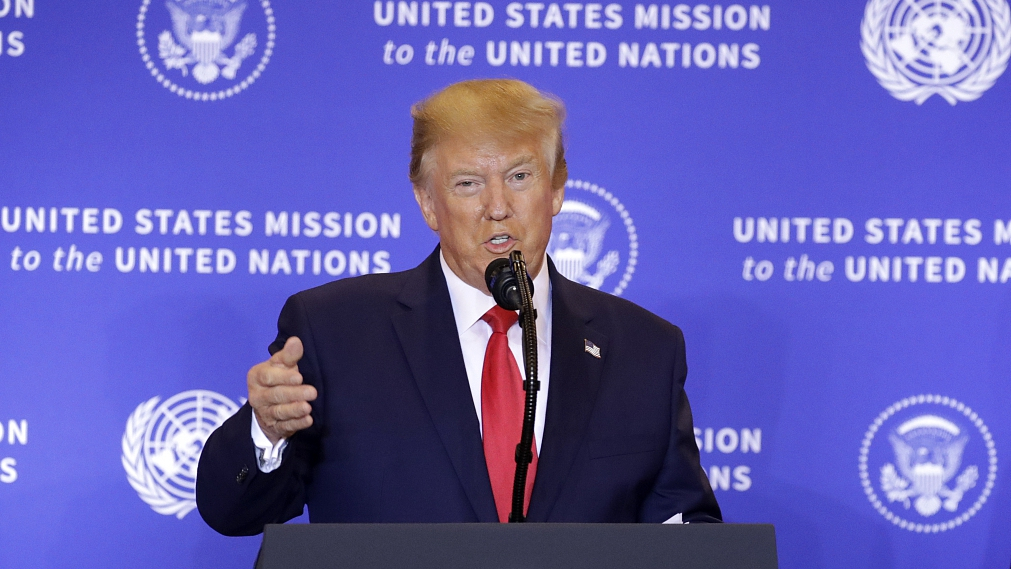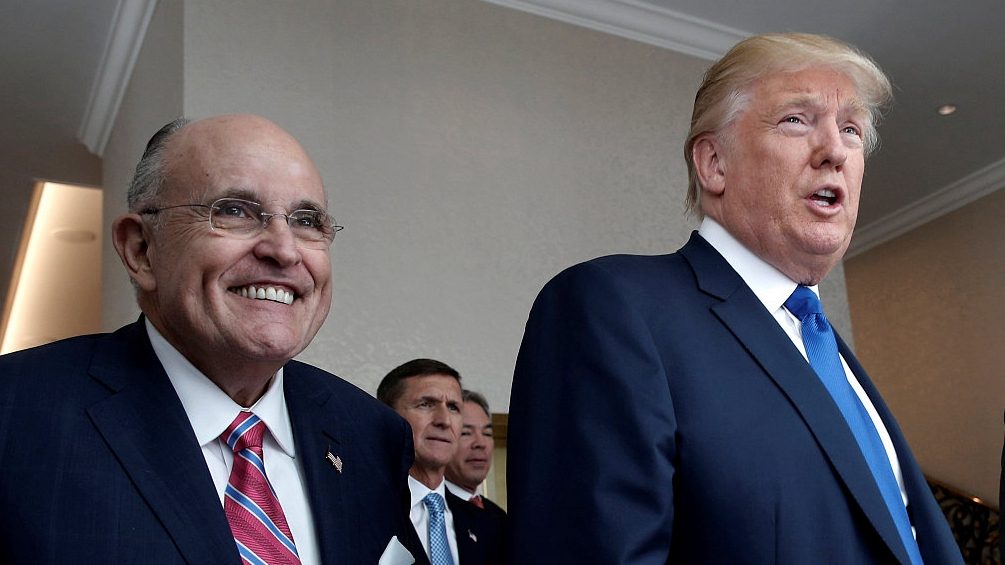
A whistleblower's complaint triggered by a July 25 phone call between U.S. President Donald Trump and Ukrainian President Volodymyr Zelensky has been released to the public.
The complaint is potentially explosive for the Trump presidency.
Read more:
Trump paints whistleblower's source as 'spy'
Whistleblower complaint released
"I am concerned that these actions pose risks to U.S. national security and undermine the U.S. government's efforts to deter and counter foreign interference in U.S. elections," the whistleblower wrote of the president, who now faces an impeachment inquiry.
Here are the key allegations, and some of the main questions that result from the complaint.
Key allegations
1. A White House cover-up
The most perilous allegation for the president may ultimately be the claim that the White House tried to "lock down" details of the call between Trump and Zelensky, effectively an accusation that there was an attempt to cover up the details of the conversation.
The whistleblower claims officials were "directed" by the White House to move the transcript from a system usually used for such calls and load it into another system typically used only for "especially sensitive" material.
If true, there should be clear electronic evidence and it would be a clear implication that officials knew the phone call was problematic.

President Donald Trump on the sidelines of the United Nations General Assembly in New York, September 26, 2019. /VCG Photo
President Donald Trump on the sidelines of the United Nations General Assembly in New York, September 26, 2019. /VCG Photo
2. Trump pushed for Biden dirt
The underlying allegation is that Trump put pressure on Zelensky to investigate unsubstantiated corruption rumors involving political rival Joe Biden's son Hunter, withholding military aid money as a means of leverage.
A partial transcript released by the White House on Wednesday confirms that Trump did ask Zelensky for "a favor" and later referenced the Bidens. The president argues there was no quid pro quo.
Critics contend that withholding 400 million U.S. dollars in military aid a week earlier was a clear attempt to pressure the Ukrainian president, even if there was no explicit bargain.
Key questions
1. Is the complaint reliable?
The complaint revealed that the whistleblower received information from several U.S. officials and "was not a direct witness to most of the events described," effectively making much of the account hearsay and giving critics room to cast doubt on it.
Press Secretary Stephanie Grisham described the complaint as, "nothing more than a collection of third-hand accounts of events and cobbled-together press clippings."
However, the details chime with a transcript of the Trump-Zelensky call released by the White House and the administration has not disputed the specifics. The whistleblower is reported to be willing to testify before Congress – that evidence will be key.
2. What charges could Trump face?
Six congressional committees are investigating various accusations of misconduct against Trump, and will pool their conclusions to determine specifically what articles of impeachment would focus on.
Specifically on the scandal surrounding the Ukraine call, Trump could stand accused of breaking campaign law by requesting foreign assistance in an election, extortion for withholding aid money appropriated by Congress, or obstruction of justice for the alleged attempted cover-up.

Donald Trump walks with Rudy Giuliani through the Trump International Hotel in Washington, D.C., September 16, 2016. /VCG Photo
Donald Trump walks with Rudy Giuliani through the Trump International Hotel in Washington, D.C., September 16, 2016. /VCG Photo
3. What are Giuliani and Barr's roles?
Rudy Giuliani is named multiple times in the whistleblower complaint. The former New York mayor has no official role with the White House, but appears to have been pursuing a secondary diplomatic track in his role as Trump's unpaid personal lawyer.
He claims he acted at the behest of the State Department in his dealings with Ukraine and "accomplished my mission." But the State Department has denied knowledge of Giuliani's work.
In the transcript, Trump tells Zelensky to work with Giuliani and William Barr, the U.S. attorney general, to look into the Bidens. In a statement, the justice department distanced Barr from any involvement. The role of both Barr and Giuliani will be closely scrutinized.
4. Could Trump be removed?
A majority of the House of Representatives is now believed to be in favor of impeachment, and polling suggests public opinion is also trending against Trump.
If the Democrats decide to push forward, the case now looks like it would to head to the Senate where a trial would take place and a two-thirds majority would be required to remove the president.
The Republicans have a 53-47 advantage in the chamber, so at least 20 of Trump's own party would have to flip to remove him from office. That currently looks unlikely, though several Republicans have now voiced concerns about the president's actions.